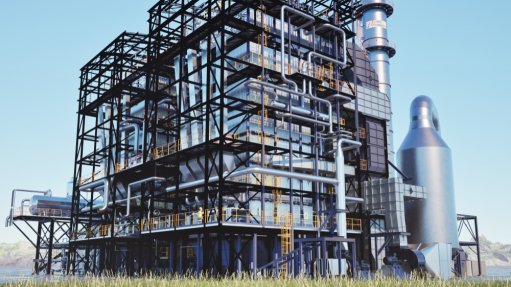Electromobility the future of transport infrastructure



POLICY PUSH Electromobility technology will become essential to the global transport industry as environment-focused legislative policies begin to take effect
EFFICIENT ELECTRIFIED ENERGY Energy efficient transport solutions lead to better profitability for fleet operations and reduce their environmental impact
On the back of introducing its all-electric Volvo FL and FE trucks, global manufacturing company Volvo Trucks aims to be the leading sustainable transport solutions provider globally.
Sales and series production of the new Volvo FL and FE trucks – designed for urban distribution and refuse operations – will begin next year and will be available to Volvo Trucks’ European clients from early next year.
“Electromobility is becoming an essential focus in the global shift towards sustainable transportation. Electric trucks are now a reality and a viable commercial solution for cities and businesses,” states Volvo Trucks brand manager Joe Pretorius.
Volvo Trucks announced its first all-electric trucks for commercial use in April, Engineering News reported. The truck range, powered by lithium-ion batteries, will not operate on fossil fuels and, without any exhaust emissions, can be used in indoor terminals and green zones, according to the company.
Pretorius enthuses that, with the introduction of these trucks, the company “has taken the lead in solutions for electrified goods transport in cities globally”. He explains that international demand for electric commercial vehicles, such as buses and trucks, has begun to increase steadily in line with global environmental-protection efforts, particularly in Europe. He stresses that Volvo Trucks has recognised the significant benefits electromobility presents to communities and industry and expects to remain a competitive global supplier of sustainable transport and electromobility solutions.
Pretorius notes that the primary benefit of electromobility to fleet owners is “a more energy efficient transport solution that, in turn, leads to better profitability for fleet operations”. It can also reduce environmental impact and contribute to a more sustainable future, he adds.
The adoption of electromobility in commercial transportation will not only reduce carbon emissions but also result in quieter cities, better traffic flow and a better working environment for commercial vehicle operators, enthuses Pretorius.
He explains that Volvo Trucks’ electric trucks are significantly quieter than traditional diesel trucks making it possible to lower noise levels and noise-related pollution in cities. He adds that quieter trucks enable fleets to perform a range of assignments, such as off-peak night-time deliveries in suburban areas, reducing the burden on roads during peak traffic hours. Also, quieter vehicles, coupled with zero exhaust emissions, improve drivers’ working environment.
Pretorius also adds that as alternative energy solutions begin to take hold globally, Volvo continues to strive to develop automotive energy solutions that are both applicable to its consumers’ environments and commercially competitive.
He concludes that, “for applications in some areas, such as urban trans- portation, large-scale electrification will be the answer, but for other applications, highly energy efficient diesel or gas technologies are the most competitive and sustainable solutions for our customers and society for the foreseeable future”.
Environmental Concerns Driving Innovation
Pretorius says mounting global climate concerns have put pressure on the transport sector, with the international transport industry subsequently considering more energy efficient transport solutions, as well as technolo- gies for alternative fuels that can either replace or complement diesel.
Pretorius states that this technology will become essential to the global transport industry as legislative policies – already in place in many countries – begin to take effect. “Many cities have or will ban diesel-powered vehicles, so the successful adoption of this technology will eventually become mandated.”
He cites the European Union’s revised targets for lower carbon emissions, the 2015 Paris climate conference’s imposed ban on diesel-powered cars from 2025 and moves by large corporations to lower their environmental footprint as examples of electromobility’s becoming a crucial commercial transportation alternative.
“Furniture retail company IKEA, for instance, has set out objectives aimed at decreasing carbon emissions from its transport operations and plans to have only electric vehicles for last-mile deliveries by 2030,” he states.
Pretorius emphasises that transport operations must consider their total cost of ownership in this changing global market. “A shift to electric trucks could mean a higher initial investment for the transport company, followed by a sustainable long-term solution.”
He outlines that solution suitability must be carefully considered and analysed against an organisation’s local client requirements to establish a transport fleet solution that meets all parties’ needs for as long as possible.
Volvo Trucks expects that the initial investments associated with the uptake of electrified transport solutions will decrease as the volumes of users increase and the cost of batteries declines over time, Pretorius concludes.
Article Enquiry
Email Article
Save Article
Feedback
To advertise email advertising@creamermedia.co.za or click here
Press Office
Announcements
What's On
Subscribe to improve your user experience...
Option 1 (equivalent of R125 a month):
Receive a weekly copy of Creamer Media's Engineering News & Mining Weekly magazine
(print copy for those in South Africa and e-magazine for those outside of South Africa)
Receive daily email newsletters
Access to full search results
Access archive of magazine back copies
Access to Projects in Progress
Access to ONE Research Report of your choice in PDF format
Option 2 (equivalent of R375 a month):
All benefits from Option 1
PLUS
Access to Creamer Media's Research Channel Africa for ALL Research Reports, in PDF format, on various industrial and mining sectors
including Electricity; Water; Energy Transition; Hydrogen; Roads, Rail and Ports; Coal; Gold; Platinum; Battery Metals; etc.
Already a subscriber?
Forgotten your password?
Receive weekly copy of Creamer Media's Engineering News & Mining Weekly magazine (print copy for those in South Africa and e-magazine for those outside of South Africa)
➕
Recieve daily email newsletters
➕
Access to full search results
➕
Access archive of magazine back copies
➕
Access to Projects in Progress
➕
Access to ONE Research Report of your choice in PDF format
RESEARCH CHANNEL AFRICA
R4500 (equivalent of R375 a month)
SUBSCRIBEAll benefits from Option 1
➕
Access to Creamer Media's Research Channel Africa for ALL Research Reports on various industrial and mining sectors, in PDF format, including on:
Electricity
➕
Water
➕
Energy Transition
➕
Hydrogen
➕
Roads, Rail and Ports
➕
Coal
➕
Gold
➕
Platinum
➕
Battery Metals
➕
etc.
Receive all benefits from Option 1 or Option 2 delivered to numerous people at your company
➕
Multiple User names and Passwords for simultaneous log-ins
➕
Intranet integration access to all in your organisation




















